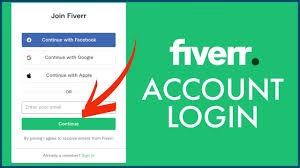PBNs Let’s start simple. A Private Blog Network (PBN) is a network of authoritative websites used to build backlinks to a single site — usually your “money site” — with the goal of improving its rankings in search engines like Google.
These are not just random blogs. They are carefully chosen and rebuilt websites that once had great content, solid backlink profiles, and trust from search engines. Think of them like your own army of digital cheerleaders, each linking back to your main site, telling Google it deserves to be #1.
Why Do PBNs Exist in SEO?
The short answer? Control. SEO is a game of links. And while earning backlinks naturally is great, it’s often slow, expensive, and unpredictable. PBNs give you control over your backlink profile, anchor text, and link placement — three powerful SEO tools.
Instead of begging for links or waiting months, you can build them yourself on domains you own. That’s the appeal.
How Do PBNs Work?
How PBNs Are Structured
At their core, a PBN is made up of expired domains that had good SEO juice — meaning backlinks from reputable sources. These domains are re-registered, hosted individually, and rebuilt to look like normal blogs or niche websites.
Each PBN site links to your main site, passing authority and improving rankings.
Domain Selection and Authority
The heart of a PBN is the domain. You want ones that:
- Have high Domain Authority (DA) or Trust Flow (TF)
- Were previously active and clean (no spammy history)
- Still have backlinks from real websites like news outlets or niche blogs
These domains are typically bought from auction sites or expired domain tools.
Hosting and IP Diversification
To avoid detection, each PBN site must be hosted separately, preferably on different IP addresses and hosting providers. Google’s algorithm is smart — it can detect when multiple sites are linked and share the same hosting, themes, or footprint.
Why Use PBNs in 2025?
Despite constant algorithm updates, PBNs still work — and often quite well when done right.
Boosting Rankings
Links are a major ranking factor. A well-structured PBN can push a site from page 3 to page 1 within weeks, especially in low-to-mid competition niches.
Full Control Over Backlinks
You choose:
- Where the link goes
- What anchor text to use
- How many links to place
- When to change or update them
That kind of control is rare in SEO.
Fast Impact
Unlike white-hat strategies that take months, PBNs can show measurable results fast, sometimes within 14–30 days.
How to Build a PBN (Step by Step)
1. Finding Expired Domains
Use tools like:
- SpamZilla
- DomCop
- GoDaddy Auctions
- Expireddomains.net
Look for domains with:
- Clean link profiles (no adult or casino backlinks)
- Backlinks from authority sites
- Relevant niche history
2. Evaluating Domain Metrics
Here are key metrics to check:
- Domain Rating (DR)
- Trust Flow (TF)
- Citation Flow (CF)
- Backlink quantity and quality
- Archive.org history (check the old site’s content)
Avoid domains that were part of previous PBNs or spammed.
3. Rebuilding the Site
You can:
- Rebuild the original content using Archive.org
- Create new content on the same niche
- Add your link(s) naturally into posts or sidebars
Use clean WordPress themes, make the site look real, and avoid duplicating content.
Creating Content for PBNs
Unique, High-Quality Content is a Must
You want your PBN to look like a real blog, not a link farm. That means:
- Human-written, unique articles
- Niche-relevant topics
- Mixed media: images, videos, charts
Avoid spun content or AI gibberish. Google is good at detecting low-quality fluff.
Tips for Natural-Looking PBN Sites
- Add an “About” and “Contact” page
- Publish non-linking blog posts too
- Use different authors and writing styles
- Vary post length and formats
Hosting Your PBN Sites Safely
Avoid Hosting Footprints
Use:
- Different hosting providers
- CDN services (like Cloudflare)
- Private or semi-dedicated IPs
Avoid using the same name, address, or email across multiple hosting accounts.
Best Hosting Options
- Easy Blog Networks (EBN)
- SeekaHost PBN Hosting
- LaunchCDN
- DIY VPS hosting (more complex but cheaper at scale)
Link Building With a PBN
How to Place Links
Don’t link from every post. Keep it natural:
- 1–2 outbound links per article
- Use varied anchor texts: branded, naked URLs, partial match
- Link to inner pages, not just homepages
Tiered Linking
You can link from your PBN to your main site (Tier 1), but you can also build backlinks to your PBNs (Tier 2). This amplifies their authority and makes the network stronger over time.
Risks and Dangers of PBNs
Google Penalties
If Google catches you manipulating rankings with a PBN, you risk:
- Manual penalties
- Deindexing of your PBN
- Loss of rankings for your money site
Deindexing Risks
Google has bots and algorithms that detect:
- Shared hosting
- Duplicate themes
- Identical plugins or contact info
- Suspicious link patterns
Can You Stay Safe?
Yes, but it takes:
- Time
- Money
- Constant monitoring
- Smart SEO strategy
Maintaining a PBN
Ongoing Tasks
- Update content regularly
- Respond to comments
- Check index status with “site:yourdomain.com”
- Keep backups of each site
PBNs that stay active and real-looking are much harder for Google to detect.
Avoiding PBN Footprints
What Are Footprints?
Footprints are clues that Google uses to link your PBN sites together. Common footprints include:
- Same WHOIS info
- Same themes and plugins
- Duplicate content or link patterns
How to Avoid Them
- Use different WHOIS (or privacy protection)
- Vary everything: themes, plugins, layouts
- Randomize your link placements
- Don’t interlink your PBN sites
How Much Does a PBN Cost?
Here’s a rough breakdown:
- Expired domain: $20–$500+ (depending on quality)
- Hosting: $1–$5/month per site
- Content: $10–$30 per article (unless you DIY)
- Misc: Themes, plugins, proxies, CDNs
A small PBN of 10 sites can cost $1,000–$3,000+ to build and maintain, but the ROI can be huge in competitive niches.
Legal & Ethical Concerns
Is building a PBN illegal? No.
Is it against Google’s guidelines? Yes.
So, it’s more of a gray-hat strategy — not illegal, but frowned upon by Google. If you’re okay with some risk for faster results, it might be worth it.
Alternatives to PBNs
Not into risks? Here are safer strategies:
- Guest posting
- HARO link building
- Niche edits (buying existing links on aged articles)
- Digital PR
These white-hat or grey-hat methods are safer, but usually slower and more expensive.
Do PBNs Still Work in 2025?
Yes — but only when done right.
Case Studies Show Mixed Results
- Low-quality, cheap PBNs get penalized quickly
- High-quality, diversified PBNs still push rankings
- Success depends on niche, keyword difficulty, and link strategy
Algorithm updates in 2023–2024 hit low-effort networks hard. But well-built PBNs survived and even thrived.
Conclusion: Should You Use a PBN?
If you want speed, control, and power in SEO, PBNs are worth exploring. But you need:
- A good budget
- Strong attention to detail
- Risk tolerance
- Time for testing and maintenance
They’re not beginner-friendly, but they can still dominate Google if you play your cards right.
FAQs About PBNs
1. Are PBNs illegal?
No, they’re not illegal. But they do violate Google’s guidelines, which means you risk penalties.
2. How many sites should I have in my PBN?
Start with 5–10 high-quality sites. Scale slowly. It’s quality over quantity.
3. Can I buy a ready-made PBN?
Yes, but it’s risky. Make sure you trust the seller and inspect each domain thoroughly.
4. What’s the ROI on a PBN?
If used correctly, PBNs can provide 5x–10x ROI — especially in affiliate marketing, lead gen, or local SEO.
5. How can I stay safe using PBNs?
Avoid footprints, use different hosts, keep sites updated, and don’t overdo the link building.






